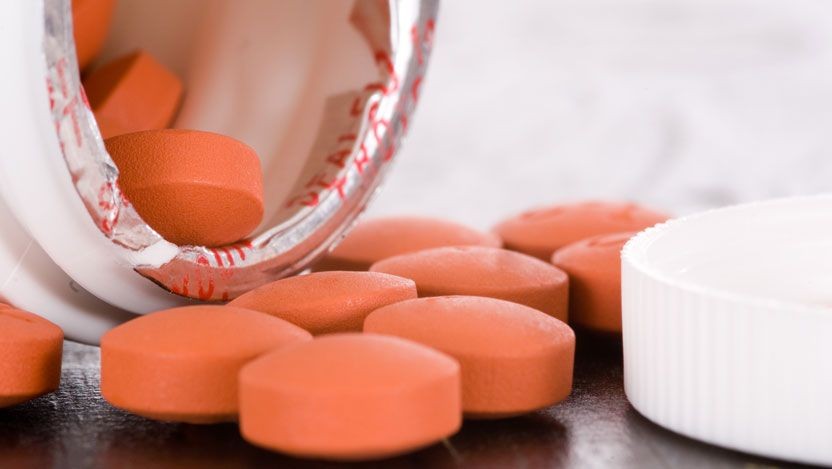
Contents
- 1 Recommended Pain Reliever for COVID-19 Body Aches
Recommended Pain Reliever for COVID-19 Body Aches
Acetaminophen (Tylenol), ibuprofen (Advil, Motrin), and naproxen (Aleve) can be used for pain relief from COVID-19 body aches in the recommended doses approved by your doctor.
During the pandemic, the World Health Organization (WHO) recommended using acetaminophen instead of ibuprofen to manage COVID-19 symptoms or vaccination side effects. However, there is little evidence to suggest that one pain reliever is riskier than another.
While recommendations regarding COVID-19 management are changing, most doctors still prefer acetaminophen over ibuprofen. If acetaminophen is not an option or provides no relief, ibuprofen can be used instead.
Safety of Pain Relievers
Over-the-counter pain relief medications help manage symptoms like muscle aches, headache, and fever by inhibiting the production of inflammation-causing prostaglandins.
These medications are safe when taken as directed. Overdosing can lead to side effects like indigestion, nausea, vomiting, or diarrhea.
Consult your doctor before taking pain relievers if you:
- Take other medications
- Have health conditions like liver or kidney disease, or peptic ulcers
- Are over 65 years old
Prevention and Treatment of COVID-19
Pain relievers cannot prevent or treat the COVID-19 virus itself. They only relieve symptoms to make you more comfortable. Symptoms may include:
- Fever or chills
- Cough
- Sore throat
- Fatigue
- Shortness of breath
- Muscle or body ache
- Headache
- Loss of taste or smell
- Blocked or runny nose
- Nausea or vomiting
- Diarrhea
Treatment Options for COVID-19
COVID-19 treatment options are still being explored. Currently, supportive care is recommended for mild to moderate cases, which includes rest, fluids, and over-the-counter pain and fever relievers like Tylenol.
More severe cases, especially those involving breathing difficulty, may require hospitalization.
Severe Body Aches as a COVID-19 Symptom
Severe body aches are the third most common symptom of COVID-19 infection.
Most COVID-19 patients experience severe body aches and fatigue, along with low-grade fever and headache. Some also report coughing, shortness of breath, vomiting, rashes, and loss of taste and smell. Aches in the body, joints, and bones are common with COVID-19 and other viral illnesses.
- When your immune system is hyper-stimulated by an infection, it triggers an immune response that causes white blood cells to produce interleukins, resulting in severe body aches.
- Body aches during an infection occur because the immune system is fighting the virus, not due to the virus itself.
- Fever can cause body aches due to dehydration and electrolyte imbalances.
The CDC has provided a breakdown of symptoms reported by COVID-19 patients:
- 75% had chills, fever, or cough, and nearly as many had shortness of breath.
- About 33% reported flu-like muscle aches or severe body aches.
- 28% reported diarrhea, and 25% reported nausea or vomiting.
- 18% reported headaches.
- 10%-15% reported chest or abdominal pain, runny nose, sore throat, or confusion.
- Seizures, rashes, loss of smell or taste, and conjunctivitis were reported by less than 1%.
If you suspect your body aches are due to COVID-19, you should:
- Self-isolate
- Get tested
- Monitor for other symptoms like fever and sore throat
- Rest
- Stay hydrated
- Stretch several times a day
- Eat a healthy diet
- Take over-the-counter pain relievers if needed
- Discuss with your doctor regarding diet and multivitamins to strengthen the immune system
Research on COVID-19 Symptoms
Most COVID-19 cases fall into the least severe category according to recent research.
Age, immune system, general health, and underlying health conditions influence how the body reacts to COVID-19.
Conditions that increase vulnerability to COVID-19 include diabetes, lung health, kidney or heart disease, high blood pressure, and obesity.
Some people may be infected and not show any symptoms; about 30% of COVID-19 cases are asymptomatic.
Mild Symptoms
In mild cases, symptoms include nasal congestion, runny nose, sore throat, low-grade fever, dry cough, fatigue, headache, loss of taste or smell, gastrointestinal upset, and itchy or painful patches on the skin.
Mild cases allow for normal daily activities, as if having a cold.
Moderate Symptoms
Moderate COVID-19 symptoms include fever above 100.4 F, chills, deep cough, fatigue, body aches, muscle pain, a general feeling of being unwell, and some shortness of breath.
Severe Symptoms
Severe symptoms include common COVID-19 symptoms and additional signs like shortness of breath, chest discomfort, confusion, trouble staying awake, eye problems, bluish face and lips, and breathing issues.
Seek medical attention immediately for severe symptoms. COVID-19 can cause pneumonia and lung scarring.
Symptoms usually develop within 11-12 days. Recovery time for severe cases can range from three to six weeks or longer.
A mild case can progress to severe, depending on the individual’s immune system and health conditions.
Reinfection within 3 months is extremely unlikely but not impossible.
Multisystem Inflammatory Syndrome
Multisystem inflammatory syndrome (MIS-C) is a rare and severe complication associated with COVID-19, primarily seen in children.
Symptoms of MIS-C include fever, red rash in the eyes, lips, palms, or soles of the feet, abdominal pain, nausea, vomiting, diarrhea, and trouble breathing.
MIS-C causes various symptoms throughout the body and requires medical attention, often leading to hospitalization.
Although MIS-C is rare, it can resemble Kawasaki’s disease in children. Immunization can help prevent MIS-C.
Safety of COVID-19 Vaccines and Booster Doses
COVID-19 vaccines must undergo rigorous scientific testing to ensure safety and effectiveness. The FDA requires three phases of clinical trials before authorization or approval.
Vaccination is the best way to slow the spread of COVID-19 and protect against illness.
By clicking Submit, I agree to the MedicineNet’s Terms & Conditions & Privacy Policy and understand that I may opt out of MedicineNet’s subscriptions at any time.


